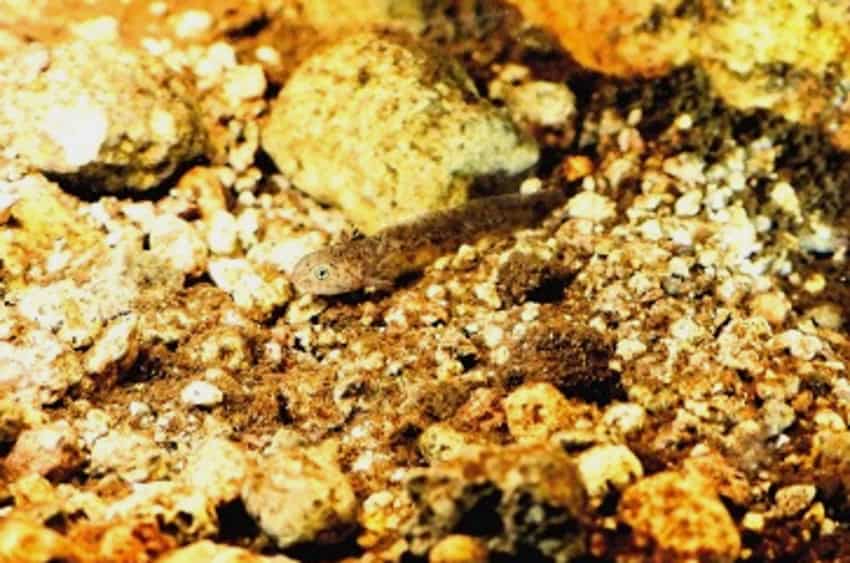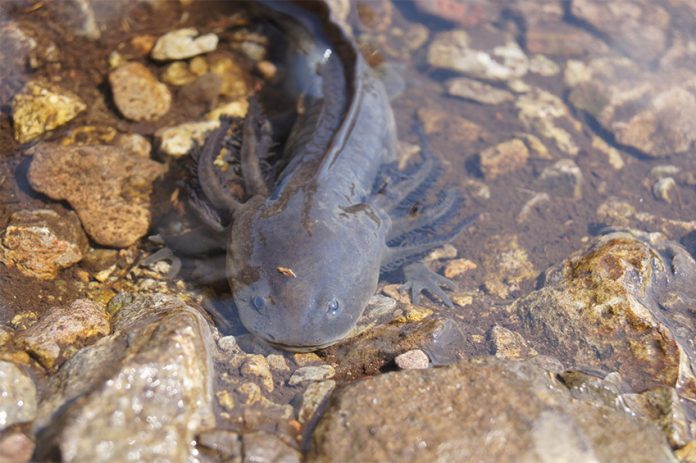Reproduction of the mountain stream axolotl — a salamander on the brink of extinction that lives only in Central Mexico — has been successful under human care for the first time ever, the Environment Ministry of Mexico City (Sedema) announced this week.
This significant milestone occurred about 25 kilometers southwest of Mexico City in a protected natural area of the Desierto de los Leones National Park, where a “maternity ward” was set up for the amphibians.

In February, Sedema recorded the first instance of egg laying by the axolotls in their facility. The team of caregivers then monitored the embryonic development of over 70 eggs, employing a specialized infrastructure designed to ensure optimal growth conditions.
The El Pantano Wildlife Conservation Management Unit includes independent enclosures that function as “cradles,” where the larvae are meticulously observed and provided with the necessary resources for their development.
After nearly three months of monitoring, the babies began to emerge, each less than 2 centimeters long. Now, the hatchlings (Sedema did not reveal their numbers in its press release) are being kept under constant monitoring, because the survival rate of axolotl offspring in the wild is usually very low.
This species of axolotl (Ambystoma altamirani) measures about 23 centimeters long (9 inches) but can grow up to 30 centimeters (12 inches). Characterized by a dark, thin body often speckled with brown, black and white.

The reproductive success aligns with the goals set out in the “Strategy for the Comprehensive Conservation of the Mountain Stream Axolotl in Mexico City,” implemented by Sedema in 2021. The strategy aims to protect the species Ambystoma altamirani and Ambystoma mexicanum, the two remaining axolotl species in the Valley of Mexico whose wild populations are gravely threatened.
Overall in Mexico, there are at least 18 different species of axolotls, almost all of which are in danger of extinction.
Mountain stream axolotls inhabit the lake systems of the Valley of Mexico, particularly in Xochimilco and Chalco, where they thrive in well-oxygenated, cold freshwater bodies rich in aquatic vegetation. Their natural habitat is increasingly compromised by pollution, habitat loss and fluctuating water levels, making conservation efforts crucial.
Two years ago, the “Adopt an Axolotl” campaign was started in an effort to raise funds for conservation.
The successful reproduction of axolotls at El Pantano represents a beacon of hope for the species’ conservation. Sedema has several partners in its commitment to this cause, including the National Autonomous University of Mexico (UNAM) and the Metropolitan Autonomous University (UAM).
With reports from El Financiero and Infobae
